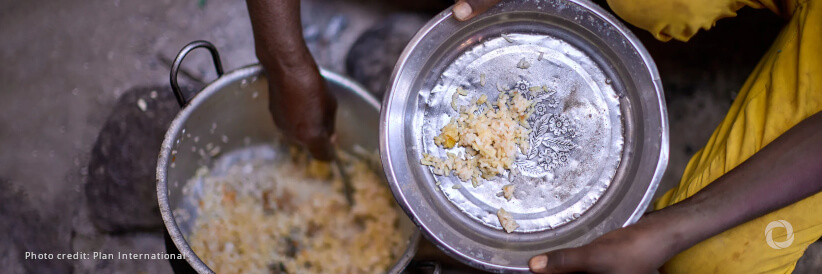The Government of Guinea-Bissau and the United Nations World Food Programme (WFP) have launched a new five-year Country Strategic Plan to achieve food security and improved nutrition. WFP’s new Strategic Plan focuses on helping rural communities to build resilience to climate change and strengthen livelihoods while supporting the government’s effort to establish the building blocks of a social protection system that is inclusive, nutrition-sensitive, and climate shocks-responsive.
According to the 2022 Notre Dame Global Adaptation Initiative Country Index, Guinea-Bissau is the third most vulnerable country in the world to climate change. Climate shocks have a negative impact on the networks that produce, transform, and deliver food to consumers.
“The Government of Guinea Bissau has made commendable progress toward achieving the Sustainable Development Goals,” said Joao Manja, WFP’s Country Director in Guinea-Bissau. “WFP is committed to continuing to support government efforts and forming partnerships to help vulnerable Bissau-Guineans gain access to nutritious food, become more resilient to climate shocks, and tackle poverty and hunger.”
In collaboration with the Government of Guinea Bissau, WFP will implement a set of integrated activities to help reduce undernutrition, and increase access to education, and safe and nutritious food. WFP will also work with national NGOs and local communities to support and purchase beans and tubers from smallholder farmers to feed schoolchildren, stimulating local agricultural production.
“It is our responsibility as the Secretary of State for International Cooperation, a structure that is within the Ministry of Foreign Affairs, to work on the follow-up of this important programme that was signed so that the desired results are felt by the population,” said Udé Fati, Secretary of State for International Cooperation. “We believe that this programme is the impulse so that together, Guinea-Bissau, with WFP and its partners, we can create the conditions for the population to feel less the effects of the issues that have been threatening our population and the world as well”, Fati added.
According to the most recent Cadre Harmonisé food security analysis, an estimated 108,000 people were unable to meet their basic food and nutrition needs in the fourth quarter of 2022, a 1.7 percent increase from the same period in 2021. This number is projected to increase to 117,000 people suffering from hunger between June and August 2023 unless urgent action is taken to address the key drivers of food security.
The strategic plan is aligned with the government’s National Development Plan (2020-2023) and the National Strategy for Development, Employment, and Industrial Promotion 2020-2024 also known as “Hora Tchiga”. WFP’s plan also aligns with the United Nations Sustainable Development Cooperation Framework for Guinea-Bissau 2023-2027.
The Country Strategic Plan for Guinea-Bissau was approved in November 2022 by WFP Executive Board in Rome, Italy, and came into effect in January 2023. It has been developed in consultation with the government and other key stakeholders.

